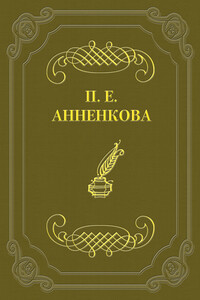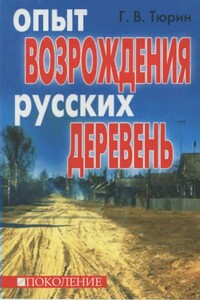The Boy Scouts In Russia - [16]
"I know where it is. I do not understand such devil's work, but I am an old man, and stupid."
Fred laughed.
"Perhaps it's devil's work, but if we have any luck it will be pretty useful to us," he said. "Come on, if it's safe for me to come out. There's a lot for me to do."
Vladimir led the way to the top of the house. On the roof, like a pent-house, there was a little room or cupola, and in this was a partially dismantled wireless installation. Fred was left there alone while Vladimir went off to get the things that Ivan had given to him for safekeeping, and he studied the installation closely. It was different from any that he had ever seen, but its leading principle, of course, was familiar to him. At first it surprised him to find that it was supplied with power by weak batteries, which the Germans had ruined.
"You couldn't send more than twenty miles with those batteries!" he said to himself.
But when Vladimir returned that was explained. For he removed a picture that hung on the wall and disclosed a number of wires.
"I do not understand," he said. "But my master and Ivan have told me that those wires that you see run down to a place far below the cellar, where there is a great engine that moves when petrol is put into it-"
"Oh, I see, a dynamo run by a Diesel engine, probably!" said Fred, suddenly enlightened. "That's a fine idea! They can develop power without steam! Costs a lot-but it's worth it, of course! I'll just try that out!"
Quickly he connected up the wires, tried out his key, after replacing the parts that had been taken away, and in a moment got a powerful spark.
"That's great!" he said, to himself, ignoring old Vladimir, who watched him in fascinated wonder. "I can send a long distance with that spark!"
Then he pounced on something he had overlooked before,-a little book bound in black leather. As he opened it, he gave an exclamation of joy. It was a code book, as he saw at once, and on the inside of the cover was a list of wireless stations, with their calls. There was one at Virballen, he saw, and a dozen other places just over the border, and running quite a distance into Russian territory, including one at Augustowo, were named.
"Ivan told me to guard that book as if it were my life," said Vladimir. "He said to put it in a safe place, and to destroy it if the Germans found it, even if they killed me for doing it."
"He was right," said Fred, soberly. "If the Germans got that book, it would be as valuable to them as a whole army, Vladimir."
"It is very strange," said the old man. "I do not understand, but I am old and stupid, and it is not for me to question my betters."
Fred sat down and studied the code for a few moments. More than ever he was glad now that his mother had always insisted that he must be able to read and speak her Russian tongue. He would have to send in Morse, instead of in the somewhat simpler Continental code, but that, he thought, would make little difference. Some operator would be certain to understand his sending.
And now he sat down and began calling Suwalki. He would have liked to call Virballen, which was nearer, but he was not sure that the Russians were still in possession of their station there, since he remembered that the Germans had had the superior force there on the Saturday night when the war broke out-a night that seemed to lie a century in the past now!
For a long minute he hammered out his call. And then through the air, over miles of hostile country, came a welcome whisper in his ear-the whisper of the answering call from Suwalki! He was in touch with Russia! CHAPTER VIII
WITHIN THE ENEMY'S LINES
For many reasons Fred did not want to hold a long talk with the Suwalki operator. German wireless stations were undoubtedly at work in the surrounding country, and, though there was no great danger that his messages might be intercepted and read, it was not advisable, of course, to let the Germans, who were sure to be watchful, know that there was a private Russian station somewhere within German limits. The instruments here were tuned to a certain wave length, and he guessed that this was standard for all Russian military stations, and different from that of the Germans. But when he held his circuit to listen he got whisperings that sounded almost like static electricity. It was evident that a good many stations were sending, and that the air all about was full of the waves.
So he contented himself with a brief and direct report of what had happened, explaining why Boris was not himself present to make this report. He asked for information as to the movements of the Russian army, but got no satisfaction.
"We don't know ourselves," said the Suwalki operator. "Things are moving very fast, but absolutely no news is being given out. I know that our cavalry-Cossacks, chiefly-have crossed the border at half a dozen different points. The Germans and the Austrians have invaded Poland, and our troops have all been withdrawn from that region. The concentration there is going on at Brest-Litovsky, and behind the line of Warsaw-Novo Georgevsk. But here there are a good many troops. There may be Cossacks within a few miles of you. They are raiding. Here it is said that our first move will be to try to cut the German railways."

«Ваше величество, позвольте матери припасть к стопам вашего величества и просить, как милости, разрешения разделить ссылку ее гражданского супруга. Религия, ваша воля, государь, и закон научат нас, как исправить нашу ошибку. Я всецело жертвую собой человеку, без которого я не могу долее жить. Это самое пламенное мое желание. Я была бы его законной супругой в глазах церкви и перед законом, если бы я захотела преступить правила совестливости. Я не знала о его виновности; мы соединились неразрывными узами. Для меня было достаточно его любви…».

В книге рассказывается история главного героя, который сталкивается с различными проблемами и препятствиями на протяжении всего своего путешествия. По пути он встречает множество второстепенных персонажей, которые играют важные роли в истории. Благодаря опыту главного героя книга исследует такие темы, как любовь, потеря, надежда и стойкость. По мере того, как главный герой преодолевает свои трудности, он усваивает ценные уроки жизни и растет как личность.

Текст воспроизведен по изданию: Письма Бичурина из Валаамской монастырской тюрьмы // Народы Азии и Африки, № 1. 1962.

Плачевная ситуация в российских деревнях известна всем. После развала масштабной системы государственного планирования исчезли десятки и сотни тысяч хозяйств, произошел массовый отток населения из сельских районов, были разворованы последние ценности. Исправление ситуации невозможно без эффективного самоуправления в провинции.Организованный в 1997 году Институт общественных и гуманитарных инициатив (ИОГИ) поставил перед собой цель возрождения сельских районов Архангельской области и добился уникальных результатов.

В настоящей книге Конан Дойл - автор несколько необычных для читателя сюжетов. В первой части он глубоко анализирует произведения наиболее талантливых, с его точки зрения, писателей, как бы открывая "волшебную дверь" и увлекая в их творческую лабораторию. Во второй части книги читатель попадает в мистический мир, представленный, тем не менее, так живо и реально, что создается ощущение, будто описанные удивительные события происходят наяву.